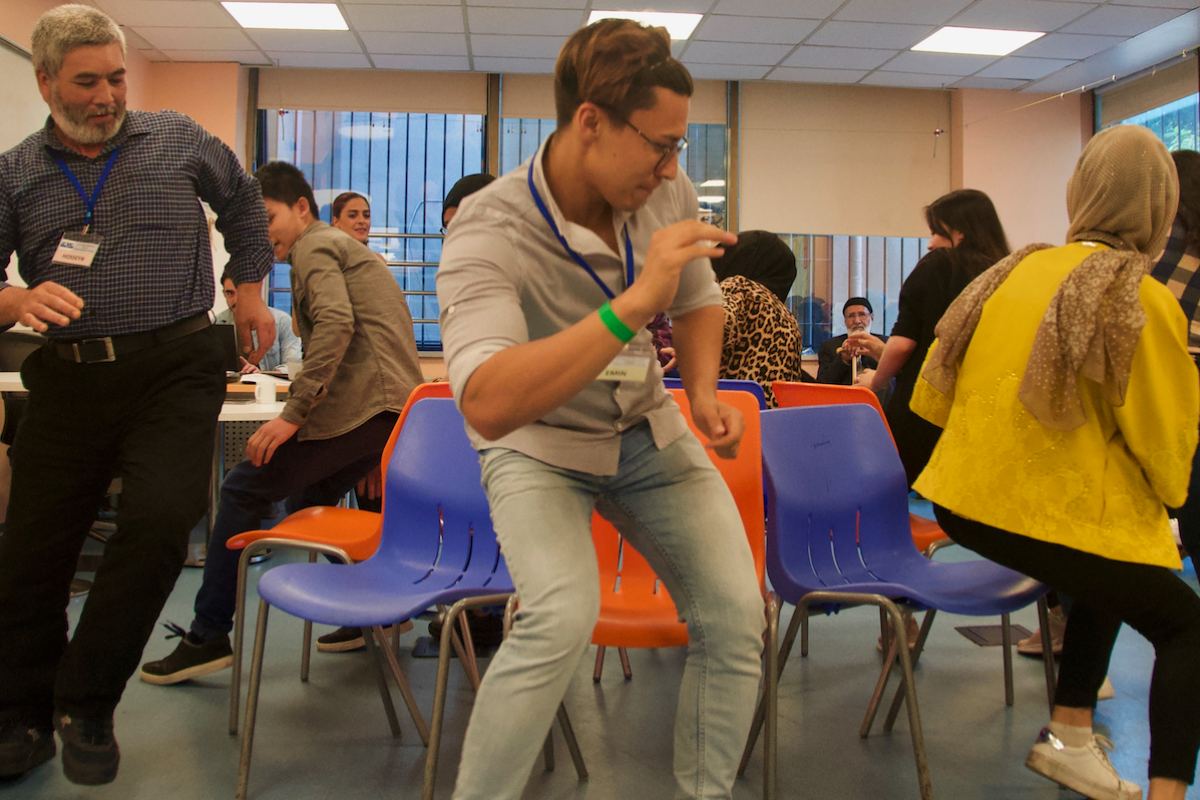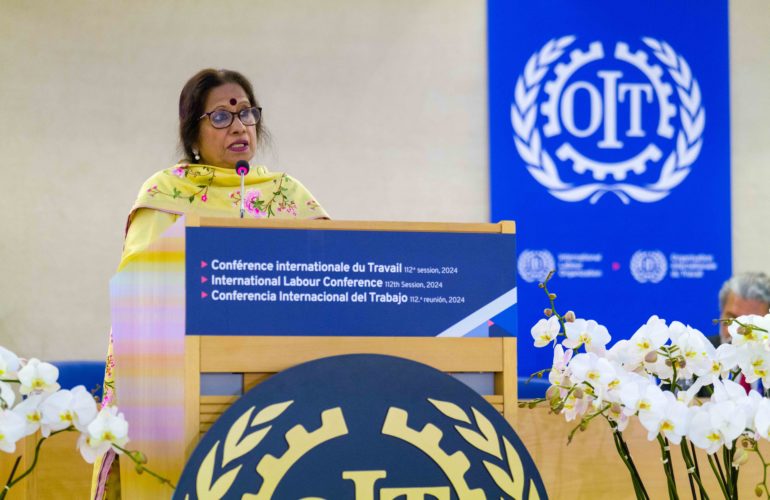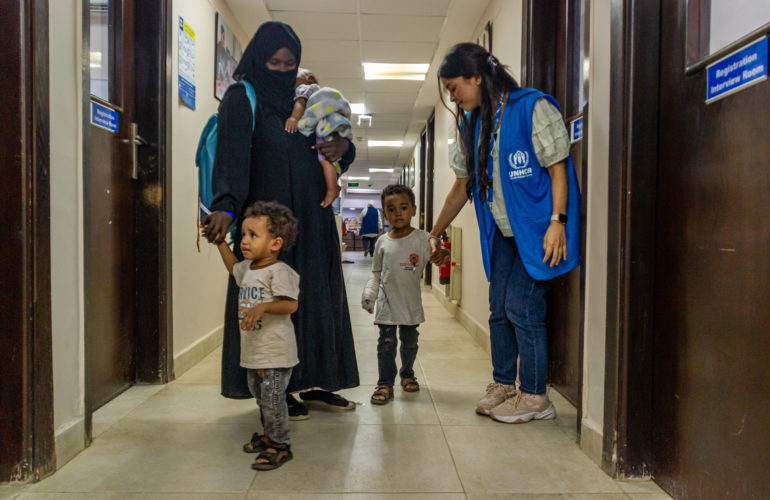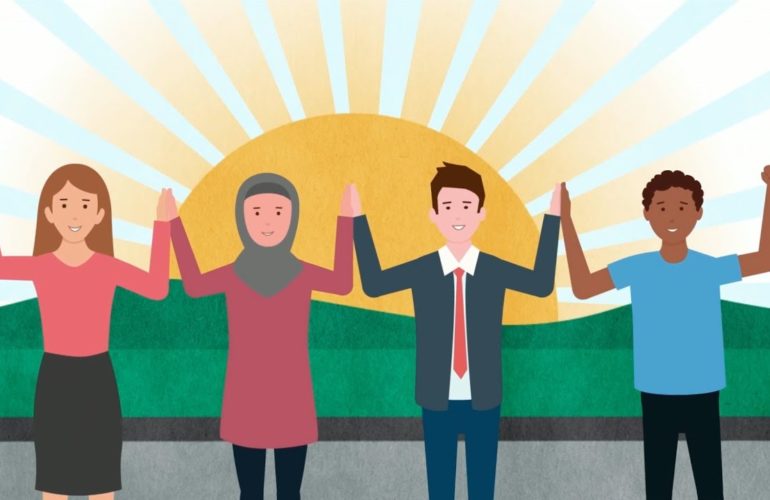U.S. Bishops Welcome Biden Administration’s Continued Commitment to Refugee Resettlement
U.S. Conference of Catholic Bishops (USCCB) welcomes announcement of 125,000 ceiling for resettlement admissions during Fiscal Year 2024, urges U.S. Congress to maintain bipartisan support for resettlement

Catholic Bishops in the United States have welcomed the Biden administration’s announcement that the U.S. Resettlement Program (USRAP) will receive up to 125,000 refugees during fiscal year 2024, which begins on 1 October 2023.
The Presidential Determination on Refugee Admissions for Fiscal Year 2024, signed on 23 September 2023, maintains the same upper limit for resettlement admissions as fiscal years 2022 and 2023.
“We commend the Biden administration for its ongoing efforts to ensure the United States is a global leader in refugee resettlement and international humanitarian protection,” said Bishop Mark J. Seitz of El Paso, chairman of the U.S. Conference of Catholic Bishops (USCCB) Committee on Migration and Refugee Services, in a 29 September statement reacting to the news. “Resettlement is a lifeline for the world’s most vulnerable refugees, and those same refugees have proven time and time again their ability to enrich the communities that welcome them.”
Priorities and resources for U.S. resettlement in 2024
The U.N Refugee Agency estimates that more than 2.4 million vulnerable refugees around the world are in need of permanent resettlement during 2024.
The U.S. Presidential Determination sets out regional allocations for refugee admissions from five global regions. In a change from preceding years, these take the form of numerical ranges indicating the minimum and maximum number of admissions from each region, introduced to “provide flexibility as needs arise”. Although maximum allocations across all regions total 168,000 admissions, resettlement from all regions may not exceed the FY 2024 ceiling of 125,000 persons.
“We welcome the Administration’s efforts to increase resettlement from the Western Hemisphere” said Bishop Seitz, referring to the substantial increase in targeted admissions from Latin America and the Caribbean (from 15,000 for FY 2023 to 35-50,000 for FY 2024). At the same time, his statement reiterated that that this increase should not come at the expense of support for other refugee populations, or resources for the communities welcoming resettled refugees.
“We reflect not only on the global need but also the challenges facing American communities, including labor shortages, a lack of affordable housing, and high inflation,” Bishop Seitz stated. “To those ends, we call on Congress to continue its unbroken history of bipartisan support for USRAP, namely through resources for processing and domestic integration efforts.”
Bishop Seitz’s statement drew attention to the situation of persecuted Christians and their need for durable protection, particularly in the Middle East and Asia. “We implore the Administration to provide equitable access to refugee resettlement for these populations,” he stated. “And to engage with host countries to promote their humane treatment.”
Church contributions to U.S. resettlement: a long-standing commitment
Bishop Seitz’s statement echoes written testimony from William Canny, executive director of USCCB’s Department of Migration and Refugee Services (MRS), to a 22 March 2023 hearing on expanding and improving USRAP held by the Senate Subcommittee On Immigration, Citizenship, & Border Safety. MRS, which serves as ICMC’s national member organization from the USA, is one of ten national resettlement agencies partnering with the federal government on USRAP.
Canny’s testimony called for sufficient resources for processing, foreign assistance and integration, and monthly arrival rates consistent with achieving the maximum resettlement admissions ceiling of 125,000 persons. It also traced the decades-long engagement and contributions of U.S. Bishops and Catholic communities to U.S. resettlement, from crucial support for the many large ad-hoc U.S. resettlement efforts beginning in the 1940s, to USCCB’s role as a core partner for USRAP from the program’s establishment in the early 1980s to today.
Echoing Canny’s focus on USRAP’s life-saving humanitarian impacts, Bishop Seitz noted how “many American Catholics can attest to these facts as resettled refugees, the descendants of refugees, or those at the forefront of our Church’s longstanding resettlement efforts.”
Alongside USRAP, Canny further noted the achievements of Parishes Organized to Welcome Immigrants and Refugees (POWIR), a privately funded program established by MRS in 2010 to engage support from Catholic dioceses for community sponsorship. POWIR mobilizes diocesan volunteers across the country to accompany newcomers in areas such as language acquisition, job coaching, housing, life skills, and cultural orientation. From May 2021 to May 2022, POWIR engaged around 2,700 local community organizations and 6,600 volunteers, raised $8 million in donations, and assisted more than 12,500 newcomers.
Bishop Seitz concluded his statement by reiterating Church support for U.S. resettlement, describing it as “one of the ways in which the Catholic Church in the United States answers Christ’s call to welcome the stranger and carries out the Church’s commitment to protecting the life and upholding the dignity of every human person.”
***
ICMC plays an important role in facilitating resettlement applications to the U.S. for refugees, mainly from Syria and Iraq but also from other regions of the world, who have sought refuge in Turkey and Lebanon. ICMC also works closely with the European Union Agency for Asylum (EUAA) in facilitating similar applications for resettlement from European Union Member States and Switzerland.
ICMC began its resettlement processing in its first days of operation in 1951, when it assisted European refugees and stateless persons to find permanent homes in North and South America and Australia. In the past, ICMC also has provided such services for refugees in Africa, Latin America, and the Balkans.

Rachel Westerby
Independent writer and researcher on migration, refugees and human rights.




